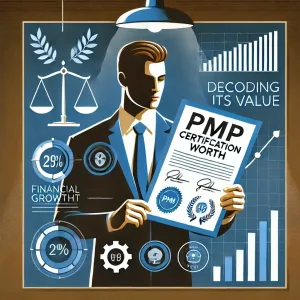Financial Management: Budgeting Tips for Project Management Contractors
Introduction
Contractors play a pivotal role in ensuring that projects are executed efficiently and effectively. Project management contractors are independent professionals who oversee various aspects of projects, from planning and execution to monitoring and closure. They are often brought in to provide specialized expertise, manage resources, and ensure that project objectives are met within the stipulated time and budget. As the demand for skilled project management contractors continues to grow, so does the need for them to adeptly manage their finances.
Financial management is crucial for sustaining a successful contracting business. It encompasses a range of activities, including budgeting, expense tracking, and financial reporting, which are essential for maintaining profitability and ensuring that projects remain financially viable. Without effective financial management, contractors may find themselves struggling to cover costs, leading to potential project delays or even business failure. Therefore, understanding the financial aspects of contracting is not just beneficial; it is imperative for long-term success.
This blog post will delve into key budgeting tips specifically tailored for project management contractors. We will explore best practices for estimating project costs, managing cash flow, and implementing proactive billing strategies. By the end of this discussion, contractors will be equipped with the knowledge and tools necessary to enhance their financial management skills, ultimately leading to more successful project outcomes and a thriving contracting business.
Understanding Your Financial Landscape
As a project management contractor or freelancer, effectively managing your finances is crucial for sustaining your business and ensuring profitability. Here are some key points to help you assess your current financial situation and understand essential financial concepts.
Evaluating Income Sources and Expenses
- Diverse Income Streams: It’s important to identify and evaluate all potential income sources. This could include project fees, retainer agreements, and any additional services you may offer. Understanding where your income is coming from allows you to make informed decisions about future projects and investments.
- Tracking Expenses: Keeping a detailed record of your expenses is vital. This includes direct costs related to projects, such as materials and subcontractor fees, as well as indirect costs like office supplies and software subscriptions. Regularly reviewing these expenses helps you identify areas where you can cut costs or need to allocate more resources.
Understanding Cash Flow and Its Importance
- Cash Flow Management: Cash flow refers to the movement of money in and out of your business. Positive cash flow is essential for covering operational costs, paying bills, and investing in growth opportunities. Understanding your cash flow cycle—when you receive payments and when you incur expenses—can help you avoid cash shortages.
- Forecasting Cash Flow: Create a cash flow forecast to predict your income and expenses over a specific period. This will help you anticipate potential shortfalls and plan accordingly, ensuring that you have enough liquidity to manage your operations smoothly.
Identifying Fixed and Variable Costs
- Fixed Costs: These are expenses that remain constant regardless of your business activity level. Examples include rent, insurance, and salaries. Understanding your fixed costs is crucial for budgeting, as they represent the baseline amount you need to cover each month.
- Variable Costs: In contrast, variable costs fluctuate based on your business activity. These can include project-specific expenses, such as materials and labor. By identifying and monitoring these costs, you can better manage your budget and adjust your pricing strategies as needed.
By thoroughly evaluating your income sources and expenses, understanding the importance of cash flow, and distinguishing between fixed and variable costs, you can create a solid financial foundation for your contracting business. This knowledge will empower you to make informed decisions, ultimately leading to greater financial stability and success in your project management endeavors.
Creating a Realistic Budget
Managing finances effectively is crucial for project management contractors and freelancers. A well-structured budget not only helps in tracking expenses but also ensures that projects are completed within financial constraints. Here are some key steps and considerations for creating a realistic budget:
- Gathering Data: Start by collecting historical data from previous projects. This information can provide insights into typical costs and help in making informed estimates for future projects. Understanding past expenditures allows contractors to identify patterns and allocate resources more effectively [2][5].
- Forecasting Income: It is essential to have a clear understanding of potential income streams. This includes not only the fees from current projects but also any anticipated future work. By forecasting income accurately, contractors can ensure that their budget reflects realistic financial expectations [2][3].
- Estimating Expenses: A comprehensive budget should include all potential expenses associated with a project. This encompasses direct costs such as materials and labor, as well as indirect costs like overhead and administrative expenses. Contractors should also consider setting aside a contingency fund to cover unexpected costs that may arise during the project lifecycle [2][4][5].
- Using Budgeting Tools and Software: Leveraging technology can significantly enhance budgeting efficiency. Various budgeting tools and software are available that can help contractors track expenses, forecast income, and manage cash flow. These tools often come with features that allow for real-time updates and adjustments, making it easier to stay on top of financial management [2][4].
- Setting Aside Funds for Taxes and Unexpected Expenses: It is crucial for contractors to allocate a portion of their income for taxes, as self-employed individuals are responsible for their tax payments. Additionally, setting aside funds for unforeseen expenses can prevent financial strain and ensure that contractors are prepared for any surprises that may occur during a project [6][7].
By following these steps and utilizing available resources, project management contractors can create a realistic budget that not only supports their current projects but also lays a solid foundation for future financial stability. This proactive approach to budgeting will ultimately contribute to the success and sustainability of their contracting business.
Tracking and Monitoring Your Budget
Effective financial management is crucial for project management contractors, especially when it comes to tracking and monitoring budgets. Here are some key strategies to ensure you stay on top of your finances:
Methods for Tracking Expenses and Income:
- Utilize spreadsheets to create a detailed budget that includes all projected income and expenses. This allows for easy updates and adjustments as the project progresses.
- Consider using budgeting apps designed for freelancers and contractors. These tools can automate tracking, categorize expenses, and provide real-time insights into your financial status. Popular options include QuickBooks, FreshBooks, and Expensify, which can simplify the process and save time.
Setting Up Regular Reviews of Financial Performance:
- Schedule monthly or bi-weekly reviews of your financial performance. During these reviews, compare actual expenses against your budget to identify any discrepancies. This practice not only helps in maintaining financial discipline but also allows you to make informed decisions based on current financial data.
- Use these reviews to assess the effectiveness of your budgeting methods and make necessary adjustments. This proactive approach can help you stay aligned with your financial goals and project timelines.
Adjusting Budgets Based on Project Scope Changes and Unforeseen Costs:
- Be prepared to adjust your budget when there are changes in project scope or unexpected expenses arise. This flexibility is essential for maintaining financial health and ensuring project success.
- Establish a contingency fund within your budget to cover unforeseen costs. This fund acts as a financial buffer, allowing you to manage unexpected expenses without derailing your project.
- Communicate with clients about any necessary budget adjustments due to scope changes. Transparency in financial matters fosters trust and can lead to smoother project execution.
Managing Project Costs Effectively
As an independent contractor in project management, effectively managing finances is crucial for the success of your projects. Here are some strategies to help you control costs and ensure that your projects remain within budget:
Techniques for Estimating Project Costs Accurately:
- Begin by establishing a firm foundation for your project. This includes defining the scope and objectives clearly, which will help in creating a more accurate budget. Utilize historical data from previous projects to inform your estimates, and consider using project management software that can assist in cost estimation and tracking [1][6].
- Break down the project into smaller tasks and estimate costs for each task individually. This granular approach allows for more precise budgeting and helps identify potential cost overruns early on [6].
Importance of Communication with Clients About Budget Constraints:
- Open and transparent communication with clients regarding budget constraints is essential. Establish clear contracts that outline financial expectations and limitations. This not only sets the stage for mutual understanding but also helps in managing client expectations throughout the project lifecycle [3][8].
- Regularly update clients on the financial status of the project, including any changes in scope that may affect the budget. This proactive approach can prevent misunderstandings and foster a collaborative relationship [3][9].
Monitoring Project Milestones and Expenditures Closely:
- Set up a system for tracking expenses and project milestones. This can include using accounting apps specifically designed for independent contractors, which can simplify bookkeeping and provide real-time insights into your financial status [4][6].
- Regularly review project expenditures against the budget to identify any discrepancies. This allows for timely adjustments and helps in maintaining control over project costs. Implementing a milestone-based payment structure can also help in aligning payments with project progress, ensuring that funds are available when needed [2][5].
By employing these strategies, project management contractors can enhance their financial management skills, leading to more successful project outcomes and satisfied clients.
Saving for Future Projects and Investments
As a project management contractor, effective financial management is crucial not only for sustaining your current projects but also for ensuring long-term success and stability. Here are some key strategies to encourage proactive financial planning for future endeavors:
- Setting Aside a Portion of Income for Future Project Investments: It is essential to allocate a specific percentage of your income towards future projects. This practice not only helps in managing cash flow but also prepares you for upcoming opportunities that may require upfront investment. By treating this allocation as a non-negotiable expense, you can build a robust financial cushion that allows you to take on new projects without financial strain.
- Understanding the Benefits of an Emergency Fund: An emergency fund acts as a financial safety net, providing peace of mind during uncertain times. For contractors, income can be unpredictable, and having an emergency fund can help cover unexpected expenses or gaps in work. Aim to save at least three to six months’ worth of living expenses in a separate account. This fund can be a lifesaver during lean periods, allowing you to focus on securing new contracts rather than worrying about immediate financial pressures.
- Exploring Options for Retirement Savings as a Contractor: Unlike traditional employees, independent contractors must take the initiative to save for retirement. There are several retirement savings options available, such as Individual Retirement Accounts (IRAs) and Solo 401(k) plans. These accounts not only provide tax advantages but also help you build a nest egg for the future. Consider consulting with a financial advisor to determine the best retirement savings strategy that aligns with your income and financial goals.
By implementing these financial management strategies, project management contractors can ensure they are not only prepared for current projects but also positioned for future growth and stability. Proactive financial planning is key to thriving in the competitive landscape of project management contracting.
Navigating Tax Obligations
Managing finances as an independent contractor involves not only budgeting and expense tracking but also understanding your tax obligations. Here are key points to consider regarding tax responsibilities and planning for project management contractors:
Understanding Different Tax Structures for Independent Contractors
Independent contractors typically operate under various tax structures, which can significantly impact their financial management. The most common structures include:
- Sole Proprietorship: This is the simplest form, where the contractor reports income and expenses on their personal tax return using Schedule C. This structure offers minimal formalities but exposes personal assets to liability.
- Limited Liability Company (LLC): An LLC provides liability protection while allowing for pass-through taxation. Contractors can choose to be taxed as a sole proprietorship or elect for corporate taxation, which may offer tax benefits depending on income levels.
- S Corporation: This structure allows contractors to pay themselves a salary and take additional income as distributions, potentially reducing self-employment taxes. However, it requires more administrative work and compliance with IRS regulations.
Understanding these structures helps contractors choose the best option for their business, impacting their tax obligations and financial planning.
Essential Deductions and Credits for Contractors
Independent contractors can take advantage of various deductions and credits that can significantly reduce their taxable income. Key deductions include:
- Business Expenses: Costs directly related to the business, such as office supplies, software, and equipment, can be deducted. This also includes home office expenses if a portion of the home is used exclusively for business.
- Travel and Meals: Expenses incurred while traveling for business purposes, including transportation, lodging, and meals, can be deducted. However, it’s essential to keep detailed records and receipts.
- Health Insurance Premiums: Contractors can deduct health insurance premiums paid for themselves and their families, which can be a substantial tax benefit.
- Retirement Contributions: Contributions to retirement accounts like a SEP IRA or Solo 401(k) can be deducted, reducing taxable income while saving for the future.
Being aware of these deductions allows contractors to maximize their tax savings and improve their overall financial health.
When and How to Seek Professional Tax Help
Navigating tax obligations can be complex, especially for independent contractors. Here are some guidelines on when and how to seek professional tax help:
- Complex Tax Situations: If your financial situation involves multiple income streams, significant deductions, or complex business structures, consulting a tax professional can provide clarity and ensure compliance.
- Tax Planning: Engaging a tax advisor for year-round tax planning can help contractors strategize their finances, optimize deductions, and prepare for tax season effectively.
- Filing Assistance: If you feel overwhelmed by the tax filing process, a professional can assist in preparing and filing your returns accurately, reducing the risk of errors and potential audits.
- Ongoing Support: Establishing a relationship with a tax professional can provide ongoing support and advice, helping contractors stay informed about changes in tax laws that may affect their business.
By understanding tax structures, leveraging deductions, and knowing when to seek professional help, project management contractors can effectively navigate their tax obligations, ensuring compliance and optimizing their financial outcomes.
Conclusion
Particularly for independent contractors, effective financial management is paramount. Budgeting serves as the backbone of a successful project, allowing contractors to allocate resources wisely, anticipate expenses, and ensure profitability. Here are the key takeaways regarding the importance of budgeting for contractors:
- Importance of Budgeting: A well-structured budget not only helps in tracking expenses but also aids in making informed decisions that can significantly impact the project’s success. It allows contractors to foresee potential financial challenges and address them proactively, ensuring that projects remain on track and within financial limits.
- Implementation of Tips: The budgeting tips discussed throughout this blog are designed to empower contractors to take control of their financial management. By adopting practices such as detailed job costing, regular cash flow analysis, and utilizing technology for financial tracking, contractors can enhance their financial oversight and project outcomes. Implementing these strategies can lead to improved profitability and reduced financial risks.
- Engagement with Readers: We encourage our readers to share their own budgeting tips or experiences in the comments section. Your insights could provide valuable perspectives and foster a community of learning among project management contractors and freelancers.
By prioritizing proactive financial management and embracing effective budgeting practices, independent contractors can navigate the complexities of project finances with confidence, ultimately leading to greater success in their endeavors.
Find out more about Shaun Stoltz https://www.shaunstoltz.com/about/.
This post was written by an AI and reviewed/edited by a human.



